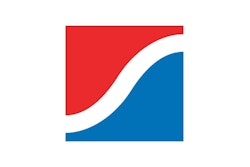The first group of students in a pilot program created by the ADA to improve oral health in underserved communities has completed their coursework at the the University of Oklahoma.
The Community Dental Health Coordinator (CDHC) pilot program is modeled on the community health worker. The five new CDHCs will bring dental education, prevention services, and patient assistance to communities with inadequate access to oral healthcare and disproportionate oral disease rates, the ADA noted in a press release.
In addition, in accordance with existing state laws, CDHCs can provide specific clinical services under the supervision of a dentist, such as dental screenings, fluoride treatments, placement of dental sealants, and simple teeth cleanings (scaling for periodontal type 1 gingivitis). CDHCs also will help patients navigate the health system to connect patients with dentists by helping them overcome barriers to care such as lack of transportation or childcare.
CDHCs are recruited from the same communities in which they are trained to serve, including remote rural areas, urban areas, and Native American communities. CDHCs can be employed by Federally Qualified Health Centers, the Indian Health Service and tribal clinics, state or county public health clinics, or private practice dental clinics in underserved areas.
To become a CDHC, students must complete 12 months of online course work, in-person clinical training and six-month internships. The training consists of nearly 1,900 hours of instruction in topics such as human psychology, sociology, communications, biomedical sciences, dental sciences, and clinical sciences.
Each pilot program is under the direction of a major university. Temple University in Pennsylvania is training students to work in urban areas, the University of Oklahoma is training students to work in rural communities, and the University of California, Los Angeles in conjunction with Salish Kootenai College in Montana is training students to work in Native American communities. All the educational institutions collaborate with Rio Salado College in Tempe, AZ, to deliver the online and clinical components of the curriculum.
The ADA is funding the pilot program through 2012 and is seeking additional future funding from corporations, foundations, and government. Henry Schein recently became the first such corporate supporter of the CDHC program, donating dental equipment valued at approximately $860,000.
Copyright © 2010 DrBicuspid.com



















